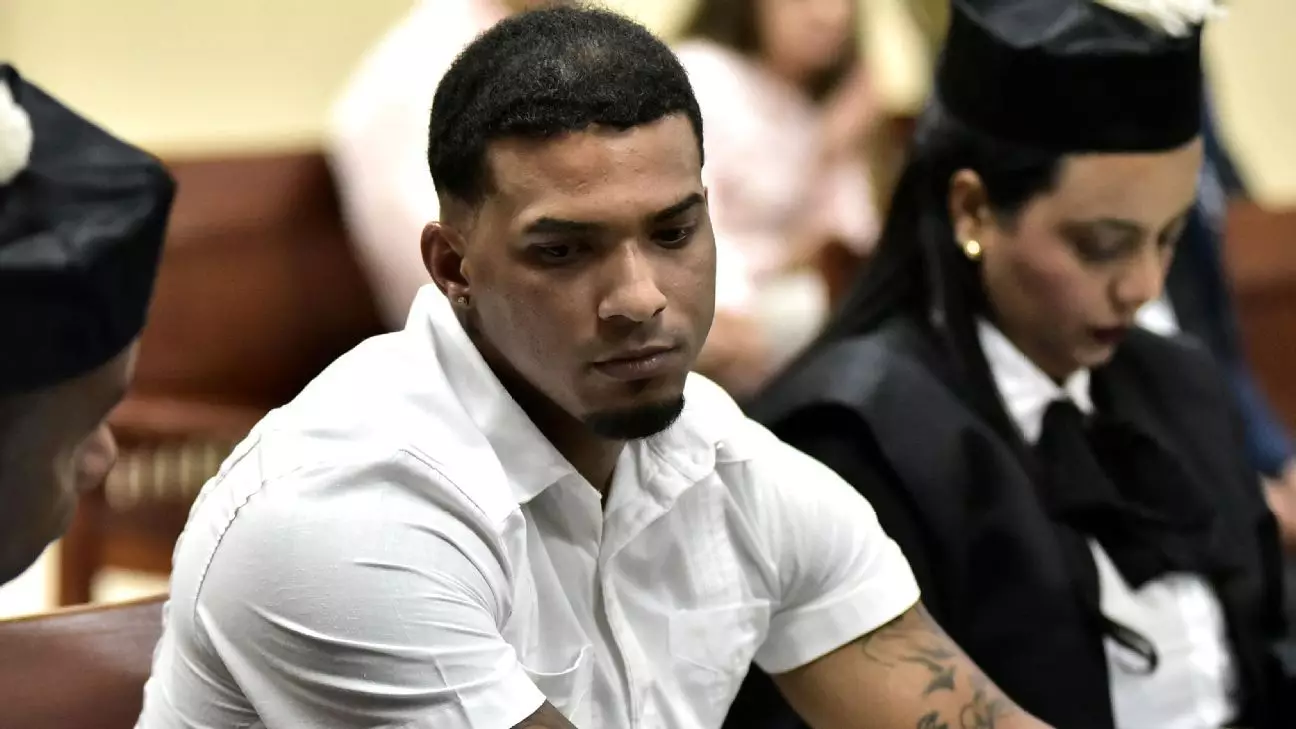In the world of professional sports, few stories create as much shock and disillusionment as those involving athletes entangled in serious criminal accusations. The recent case of Wander Franco, the once-promising Tampa Bay Rays player, epitomizes this unfortunate reality. As Dominican prosecutors seek a five-year prison sentence for Franco based on allegations of sexual abuse involving a minor, it raises critical questions about accountability, ethics, and the role of athletes as public figures. With the revelations surrounding Franco, a glaring light has been cast upon not just an individual but the broader culture that surrounds professional sports.
The Alarming Allegations and Legal Proceedings
Prosecutors have claimed that Franco was engaged in an illicit relationship with a girl who was just 14 years old. The gravity of these claims is magnified by the suggestion that he went to great lengths to sustain the relationship, including allegedly transferring substantial sums of money to the minor’s mother for her complicity. The sight of prosecutors laying out their case, citing findings of $68,500 and $35,000 supposedly linked to Franco, is alarming. Each detail speaks not only to potential statutory violations but also raises ethical concerns regarding the behavior of a person in a position of influence.
These developments come at a terrible juncture for Franco, whose career was soaring sky-high until these allegations came to light. Was his ascent to stardom shadowed by a web of secrecy and criminal intents? As the legal battles unfold, it challenges the adoration fans often bestow upon athletes without fully scrutinizing their conduct off the field.
Defensiveness and Doubts: The Personal Struggle
Amid these allegations, the defense team is grappling with ambiguities in the prosecution’s case. Franco’s lawyers argue that the evidence is insufficient to warrant such serious charges, signaling a legal tug-of-war that could take months, if not years, to resolve. One critical battleground is whether Franco is viewed as primarily responsible for the alleged misconduct or merely an accomplice in a larger scheme that includes the minor’s mother, who also faces severe charges. This legal dichotomy reveals the complexities involved in establishing culpability in cases where power dynamics are in play.
Franco himself, having signed an agreement worth $182 million just two years ago, now finds his career hanging by a thread, firmly placed on Major League Baseball’s restricted list. The unpredictability of his situation underscores the precarious balance between fame and consequence. This dynamic raises pressing questions: how long can sports figures operate under the radar of accountability? And what are the implications for society in excusing or overlooking such behavior from those we idolize?
A Call for Cultural Reflection in Sports
Ultimately, the case of Wander Franco serves as a sobering reminder of the darker elements that can reside within the world of athletics. It is a call for sports fans, organizations, and the broader community to reflect on the ramifications of glorifying individuals without recognizing their human flaws. Today, the sports industry must shoulder the responsibility of fostering a culture where accountability is paramount, and misconduct is met with the rigor it deserves. As this case unfolds, let us not just watch passively but engage actively in challenging the narratives surrounding our sports idols, demanding integrity and respect for all, especially for the most vulnerable.


Leave a Reply